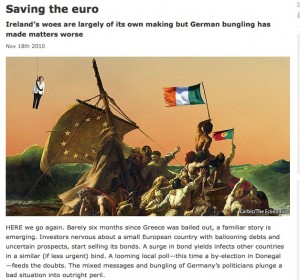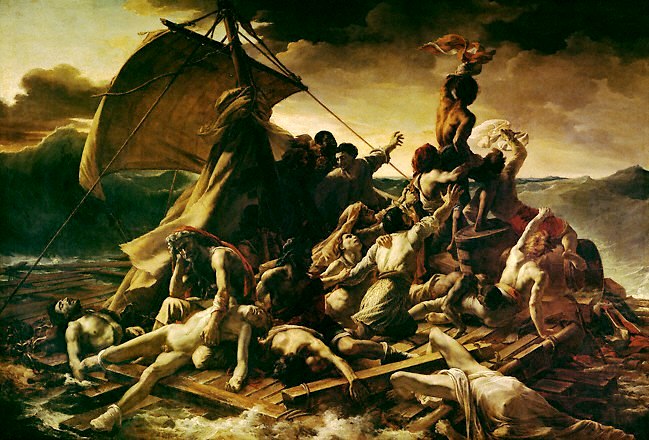
The only Irish novelist with the range to encompass what has happened to Ireland in my lifetime is Colm Toibin, and so I live in hope that one day we will get a blockbuster novel from him about the Republic that wasn’t. In the meantime, his reflections on the current crisis are interesting. He begins by revealing that he got to know some of the IMF guys who came to sort our Argentina after its economic collapse, and in the process came to understand how they think.
I remembered my American friends this week as news came that a delegation from the EU and the IMF were to arrive in Dublin on Thursday. I think I have an idea how dedicated and serious-minded these fellows would be, especially on weekdays, and how little interest they might have in Irish history, Irish pride, Irish sovereignty or even Irish doublespeak. They like to get the job done and then get home.
On the night before these figure-crunchers arrived in the city, I watched a discussion programme on Irish television in which commentators, people younger than me, invoked the dead heroes who had fought for an independent Ireland, naming some of them, including patriots from the 18th century, and wondering how they would feel now were they to find out about the shame we Irish felt.
We had fought so hard for our freedom, they said, and now, with the arrival in Merrion Street, where the government is housed, of besuited stone-faced economists with German and Scandinavian names and number-crunching knuckles, we had betrayed our dead. Patrick Pearse eat your heart out, the Germans have arrived.
I hadn’t known that Toibin comes from a Republican background. His grandfather fought in the 1916 rebellion and was imprisoned afterwards. “I was brought up”, he recalls, “in the proud memory of his bravery. My uncle and my father worked all their lives for the Fianna Fáil party which has run Ireland most of the time since 1932 and which is in power now. I have never ceased to believe in their patriotism and idealism”.
But he puts his finger on what has always been wrong with our little Statelet:
The problem is not merely that there is no blueprint in Ireland now, no agenda, for how this might be done. The problem is also that it wasn’t there before the Celtic Tiger either, nor during its heady reign. In areas which really matter, such as health and education, Ireland has, since independence, been deeply divided.
There are two health systems here, for example. One is for middle-class people who pay health insurance and the other for those who can’t afford to pay. There are short waiting lists for one, and long waiting lists for the other. Often, both see the same doctors, who treat the first group in private hospitals, or private rooms in public hospitals, and the second group in public hospitals.
Everyone here knows that the difference can be a matter of life and death. Some of the doctors make a fortune. There has been no serious effort to reform this, but many efforts instead to copper-fasten it. This is one example of what sovereignty has done to us.
As for Irish “shame” about having to be rescued by “the Germans”, well, that’s also a bit rich coming from a country that has so manifestly proved unable to govern itself.
The more I found out about contemporary Germany, for example, and the more I travelled there, the more I came to admire it and the more I came to hope that some of its best qualities could come to influence and affect Ireland.
Thus when the Irish Times on Thursday mentioned “the German chancellor” I did not automatically feel that this person was in some way a malignant force in the world. Instead, I saw someone rational and prudent, sensible and deeply intelligent.
I’ve been thinking a lot about this in the last week. In the late 1970s I spent a year working in the Netherlands and it changed my life, because it gave me an insight into what a well-governed society could be like. Holland was devastated after the war, with its population starving and totally dependent on foreign aid. And yet out of those ruins the Dutch built a prosperous, liberal, humane democracy. So did the Germans, labouring under an even bigger psychic burden. What these societies did demonstrates what can be done with political will and intelligent outside assistance. That’s what Ireland needs to do now. And if the IMF and EU boys can get that process started, then more power to their elbows.




